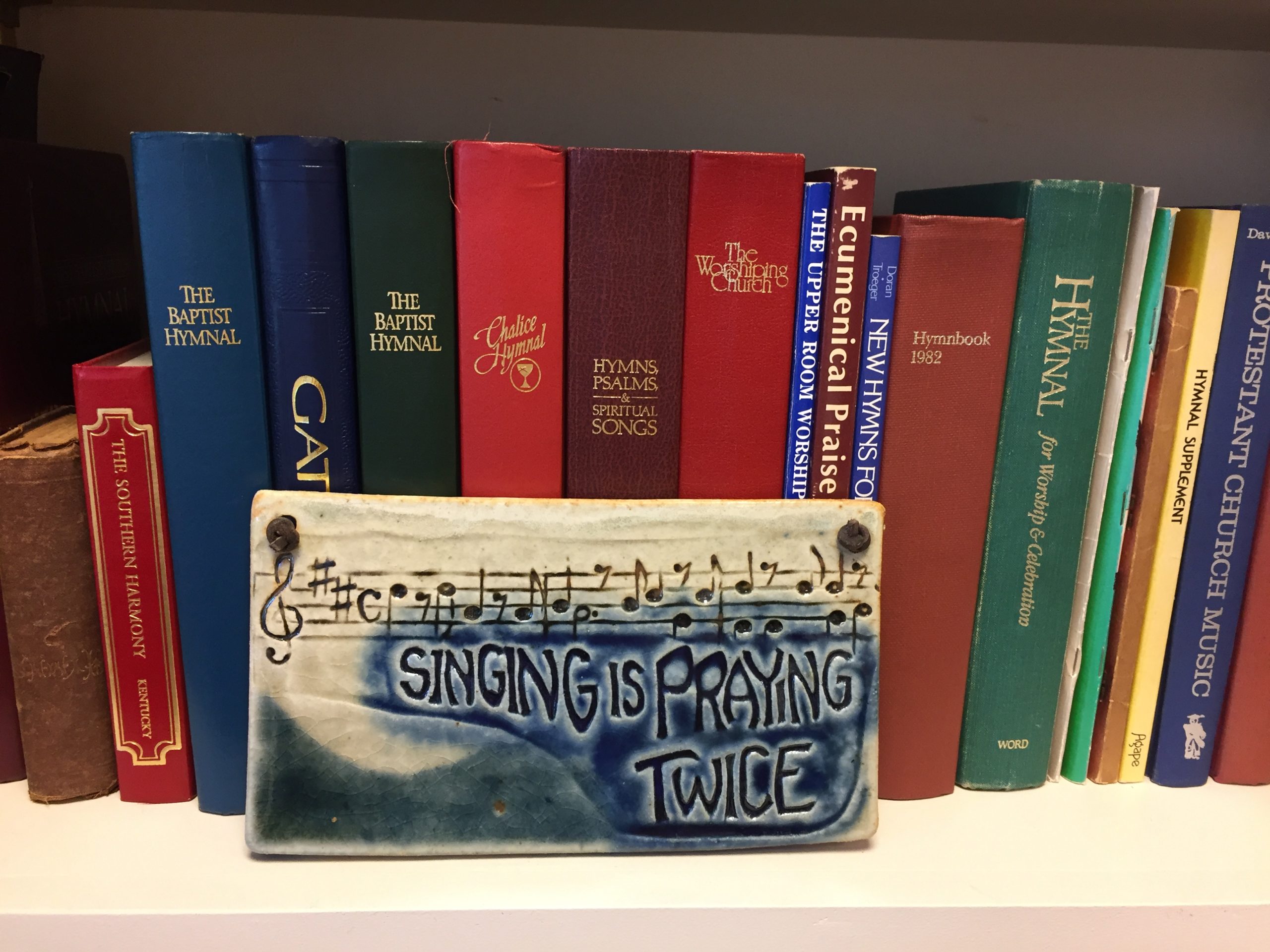On the book shelf in my office is a gift from a church member and former adult choir member, Frances. The ceramic plaque reads, “Singing is praying twice.” It’s an adaptation of a quotation usually attributed to St. Augustine, “One who sings prays twice.”
What does this mean? At its best singing together in worship helps us express well our praise of God, creates a space for us to offer ourselves to God and binds us to one another in community. Pastors and ministers of music and worship leaders dream that worshipers would experience the presence of God weekly. Singing well helps us pray more deeply, puts us in a place to hear the voice of God.
Churches vary widely in the assets they have to support singing. “Sustained excellence” is the way a colleague in another state recently described music ministries with strong legacies and abundant resources. But what about the many churches who continue to be faithful Sunday after Sunday but are in a musical recession or simply lack leadership or resources?
Sing anyway. There is an expectation that when we worship together we are going to sing. So, let the people sing. Take some time to figure out what your people sing and sing well.
Last fall at Wilshire Baptist Church, to celebrate the 500th anniversary of the Reformation, we planned a hymn festival for morning worship. Our theme was “Hymns We Love.” I did an informal poll of some key leaders in our church: staff, deacons, Worship and Music Committee and a few other members and asked them the question: “What hymns do you think our congregation loves and sings well?” Based on this information we selected about a dozen hymns in a variety of styles: classic traditional hymns, gospel hymns, new hymns. Some hymns were accompanied by organ and brass, others by piano, mandolin and violin. There were a few moments the people sang without accompaniment, the voices filling the sanctuary. Simply put, it was wonderful.
What is the soundtrack of your congregation? What are their heart songs? What are the hymns that speak to the identity of your community of faith? Can you list 10 hymns or songs that make up a core playlist? This is an opportunity to get to know your people and just as important have them get to know one another. The conversation is just as important as the information.
Another way to engage your people in singing and praying twice is to invite church members to write new texts. This past spring a Wilshire member who is a writer and I led a three-session Hymn Writing Seminar. About a dozen Wilshire members met weekly to learn how to create texts for worship. Several people composed original hymns. LeAnn Hampton composed a pair of stanzas we have been singing in worship this summer as the offering is presented. We are singing this to the traditional melody of the Doxology, OLD 100TH.
Our God is making all things new, a promise that we know is true.
Through eyes of faith we long to see a love-transformed community.
A place where truth and justice reign and healing triumphs over pain,
Where all have dignity and worth and peace is passed throughout the earth.
Another hymn composed in this laboratory is “We Adore You, God, Creator,” a new text by James Steel, a member of Sanctuary Choir. We sing this to the hymn tune NETTLETON, a melody most often sung to the familiar text “Come, Thou Fount of Every Blessing.”
It is such a beautiful gift to the church when poets and writers create something new for the church. Such gifts are received with gratitude. “Sing to the Lord a new song” must surely be an imperative for every generation. Even “Amazing Grace” was a new song once upon a time.
Years ago, I served a small church in Mobile, Alabama. One Sunday evening the service was built around singing familiar gospel hymns. Following the singing the pastor asked people why they loved these particular hymns. With just a little encouragement the people began to tell their stories and they told how these hymns were woven into the fabric of their lives. The songs were part of the journey of faith and I began to realize there was much more going on in the hearts of people than simply the notes on the page. Those who sing pray twice.

Where can I order a plaque like yours that says
“Singing is Praying Twice” ?